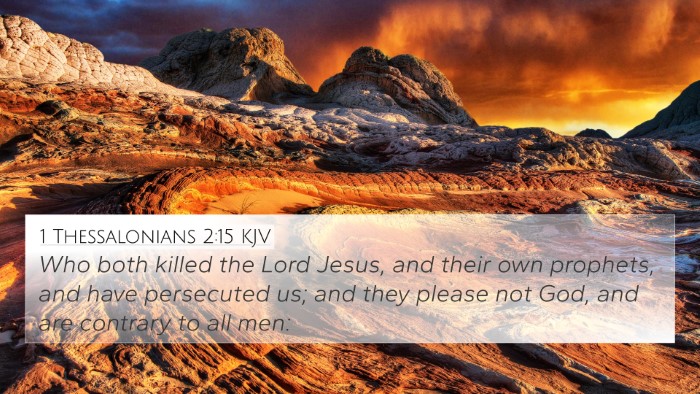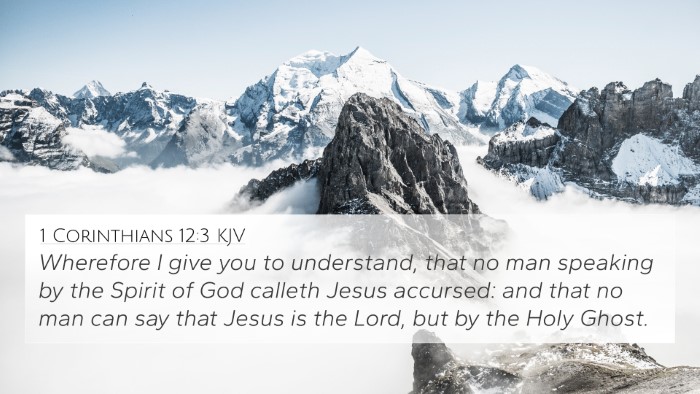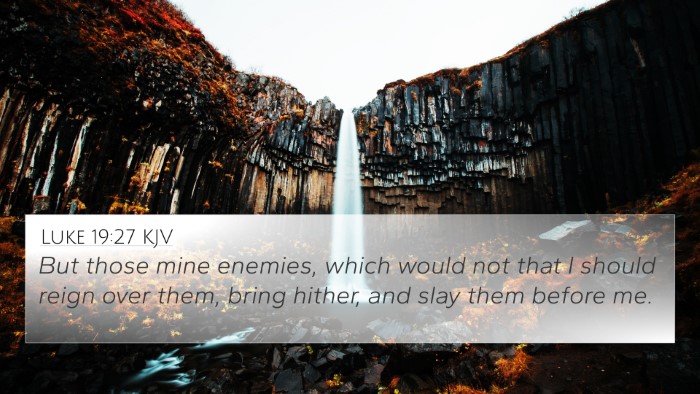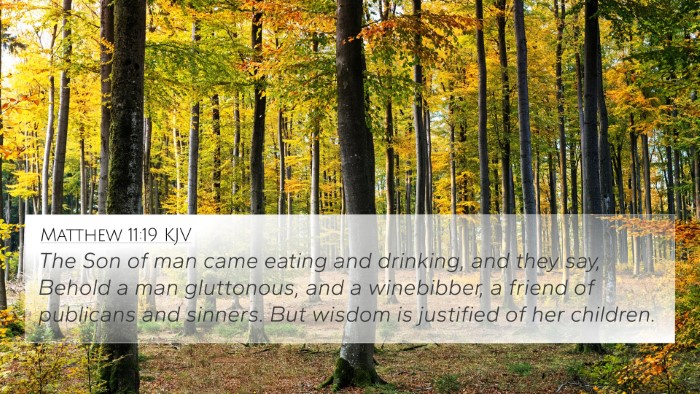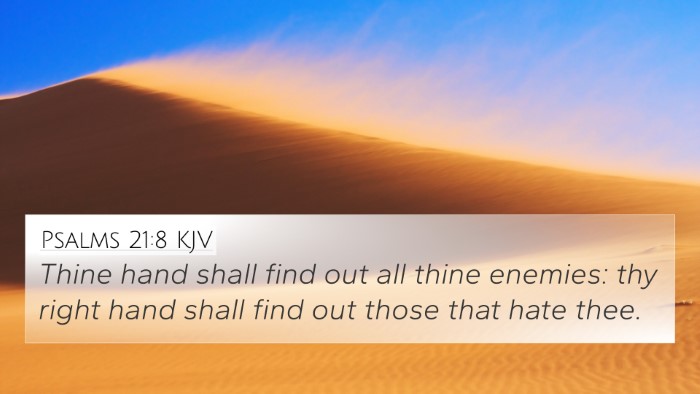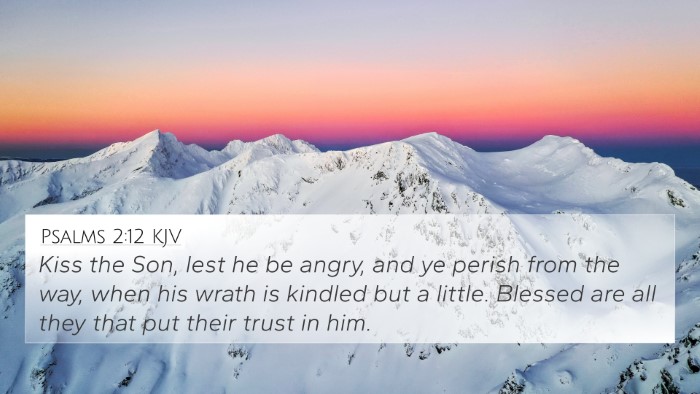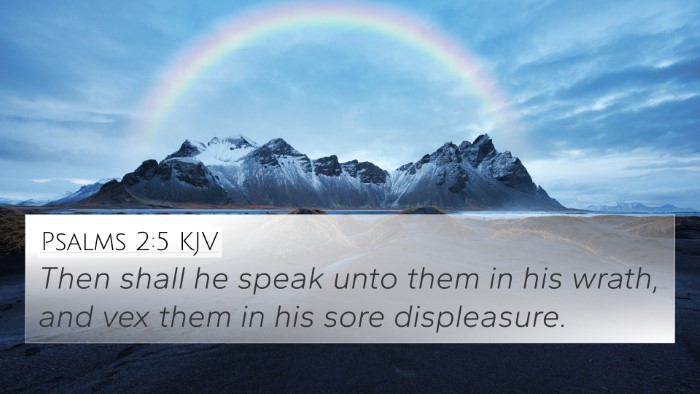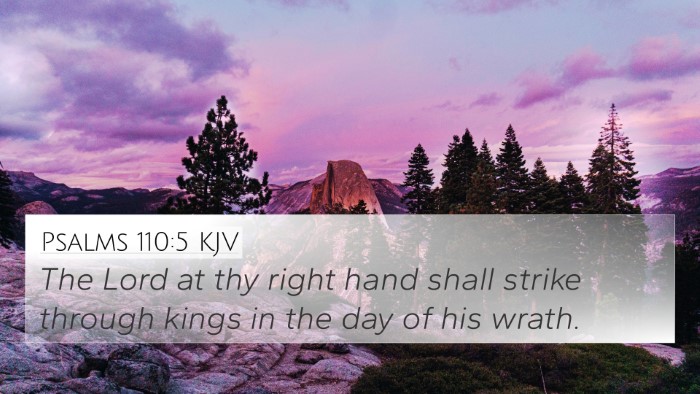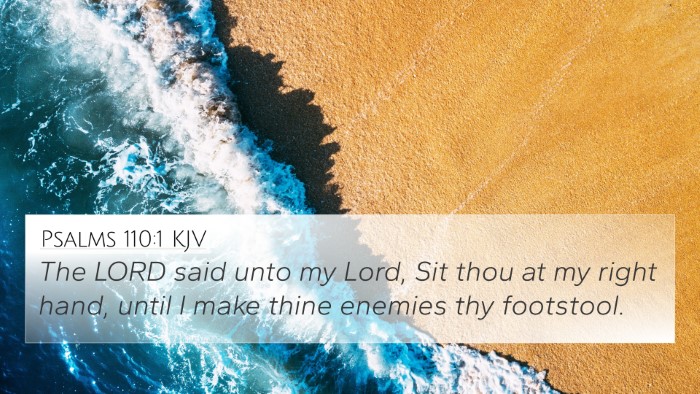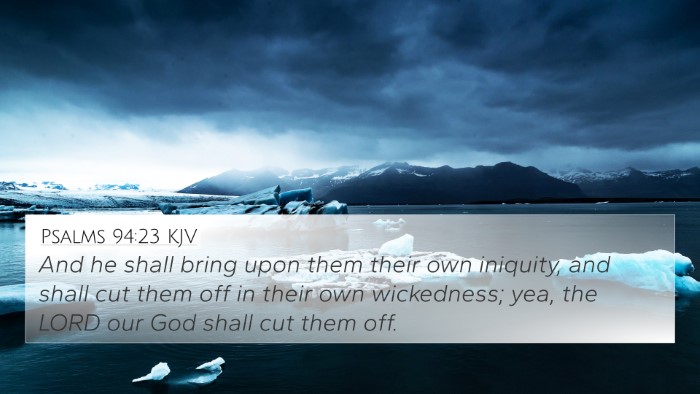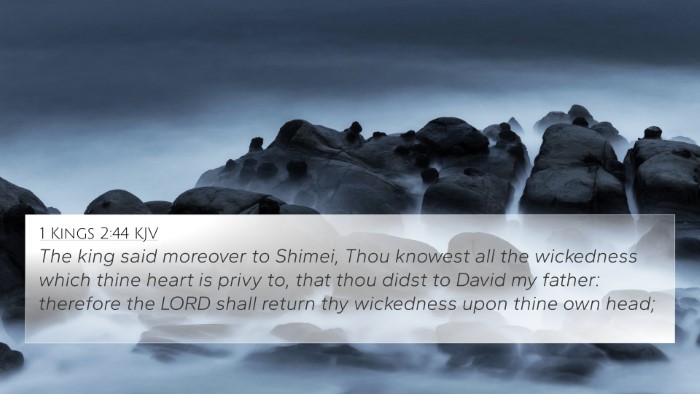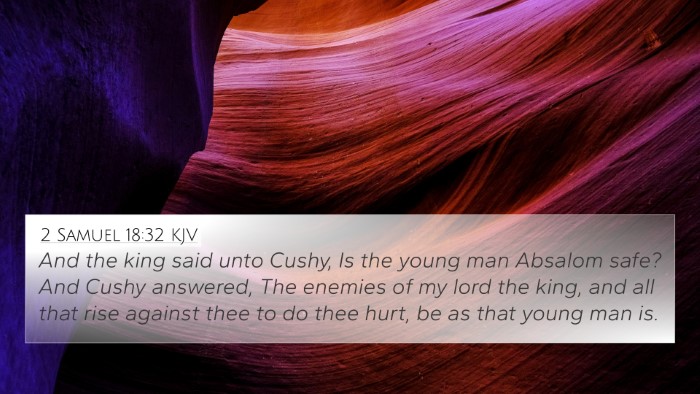Psalms 109:20 - Meaning and Insights
The verse Psalms 109:20 states:
"Let this be the reward of my accusers from the Lord, and of those who speak evil against my soul."
This verse expresses a deep longing for divine justice against those who unjustly accuse and malign the speaker's character. It highlights the theme of seeking retribution and protection from God.
Summary of Biblical Insights
The following insights about Psalms 109:20 are drawn from public domain commentaries by Matthew Henry, Albert Barnes, and Adam Clarke:
-
Divine Retribution:
Matthew Henry emphasizes that this plea is not for personal revenge but rather a call for God's judgment upon the unjust accusers. The psalmist relies on God’s justice to set things right.
-
Verbal Assaults:
Albert Barnes elaborates on the nature of the 'evil words' spoken against the psalmist, pointing out that this reflects the common experience of being verbally attacked, especially when one is striving to live righteously.
-
Faith in God’s Justice:
Adam Clarke notes that the speaker’s appeal is a demonstration of faith in God’s ability to handle injustices, suggesting that turning to God in times of distress is paramount for believers.
-
Importance of Community:
This verse indicates how public accusations can harm community relationships. The request for divine intervention underscores the need for God’s justice in maintaining social harmony.
-
The Role of Accusers:
The verse draws attention to the impact of accusers in the spiritual and emotional state of individuals, reflecting on how slander can lead to greater challenges in a believer’s faith journey.
-
Theological Implications:
Barnes points out that this prayer may reflect the broader theological implications of God's sovereignty in administering justice, reinforcing the conviction that God will ultimately protect the innocent.
-
Hope for Deliverance:
Clarke suggests that the psalmist, in calling for divine retribution, simultaneously expresses a hope for deliverance from suffering and vindication from slanders.
Cross-References for Psalms 109:20
Psalms 109:20 connects with various other scriptural verses that highlight themes of justice, retribution, and the protection of God over His people. Below are the notable cross-references:
- Psalm 7:16: "His mischief shall return upon his own head, and his violent dealing shall come down upon his own pate." - This verse echoes the message of divine retribution against the wicked.
- Jeremiah 18:23: "Yet, Lord, you know all their plots to kill me. Don’t forgive their crimes or blot out their sins from your sight." - A plea for divine justice similar to the sentiments expressed in Psalms 109.
- Psalm 35:4: "Let those be put to shame and brought to dishonor who seek after my life; let those be turned back and brought to confusion who plot my hurt." - Here, the call for justice reflects a common cry in the Psalms.
- Proverbs 26:27: "Whoever digs a pit will fall into it, and a stone will come back on him who starts it rolling." - This proverb illustrates the principle of coming retribution upon wrongdoers.
- Romans 12:19: "Beloved, do not avenge yourselves, but rather give place to wrath; for it is written, ‘Vengeance is Mine, I will repay,’ says the Lord." - This verse captures the essence of entrusting justice to God.
- Matthew 5:11: "Blessed are you when they revile and persecute you, and say all kinds of evil against you falsely for My sake." - It relates directly to the experience of false accusations and the spiritual reward associated with such trials.
- Philippians 1:28: "And not in any way terrified by your adversaries, which is to them a proof of perdition, but to you of salvation." - Reflects confidence amidst adversities that is similar to the sentiments expressed in Psalms 109.
Thematic Connections
The thematic links between Psalms 109 and other scripture can be explored deeply using various tools for Bible cross-referencing. Such cross-referencing Bible study methods showcase how particular ideas concerning justice and defense against slander are prevalent throughout scripture.
- To engage in a deeper comparative Bible verse analysis, one might examine themes of divine justice across prophetic texts and New Testament teachings.
- Utilizing a bible concordance can assist individuals in discovering related scripture and expanding their understanding of the psalmist's plight and God’s response.
- Furthermore, bible reference resources may offer structured ways to identify key connections through thematic studies that can enhance one’s biblical literacy.
This verse, therefore, embodies a rich tapestry of emotion, theology, and communal concern, making it pertinent for personal reflection, sermon preparation, or an in-depth biblical study.
Conclusion
Psalms 109:20 serves not only as a cry for justice but as an invitation to understand God's role in administering justice and offering protection against slander and false accusations. Through careful cross-referencing, believers can find comfort in knowing that they are not alone in facing adversities and that God’s justice prevails.




